Socialism is an economic system that attempts to walk the fine line between communism and capitalism, idealizing a structure that promotes equality, fairness, and plausibility within a community of people. It advocates the ownership and regulation of production, distribution, and trade of goods and services by the population within a specified area, managed by a collective of representatives elected by them. Films about socialism may be ones that propagate the above ideology, or they may be those pictures that criticize or bring out the flaws in other social systems.
Personally, I am not too big a fan of propaganda in film, but considering that a major portion of socialist movies ever released fall into this genre, I will include them on my list as well. A relatively high number of my selections, you will notice, have been released in the opening half of the 20th century, and I did this with good reason, because several of the most vital films pushing the socialism structure came out during this time period, specifically surrounding the years of the two World Wars, though the better number of them lacked the artistic or aesthetic excellence of films holding the same themes that followed. With that said, I present to you list of best films about socialism ever made. You can watch several of these best socialism movies on Netflix, Hulu or Amazon Prime.
10. Office Space (1999)

‘Office Space’ is one of the best-written comedies of the ’90s, talking of three colleagues working a typical 9-to-5 job within their respective cubicles, until one day they break and decide to revolt, going strongly against the system at hand. Featuring some of the most memorable characters to ever find a place in an ensemble comedy, the film is effective because it doesn’t really have a message to communicate by the time it ends, abandoning such norms for a structureless form of storytelling. It tells the bigger tale with a refreshing sense of subtlety. I particularly like the way this film ends, which is basically with the biggest joke during the entire runtime, though it isn’t communicated as directly as the other funny scenes are.
9. Man’s Castle (1933)
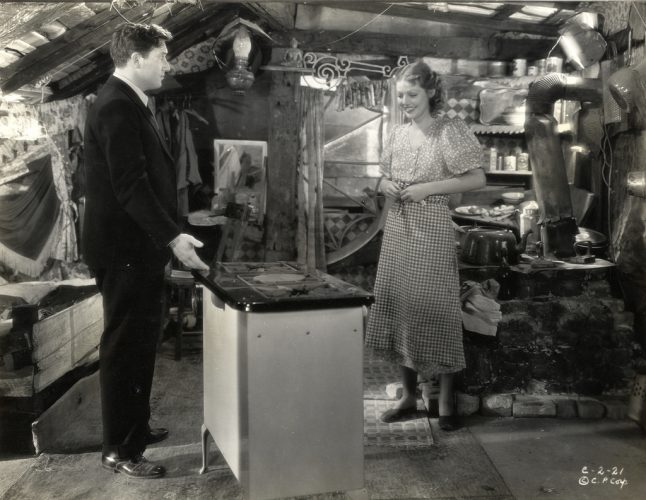
Loretta Young – one of my favorite Golden Age actresses – and Spencer Tracy star in this romantic drama about a submissive woman willing to have her partner, a free-willed, misogynistic, eccentric young man, do whatever he wishes to with their marriage, as long as he does not separate from her. It is a sweet, emotional movie with some bits sticking out as unnecessary or overdone. There’s something of interest in the way the film molds the character of its lead male, showing how his troublesome surrounding society influences and manipulates his life at home.
8. Stroszek (1977)
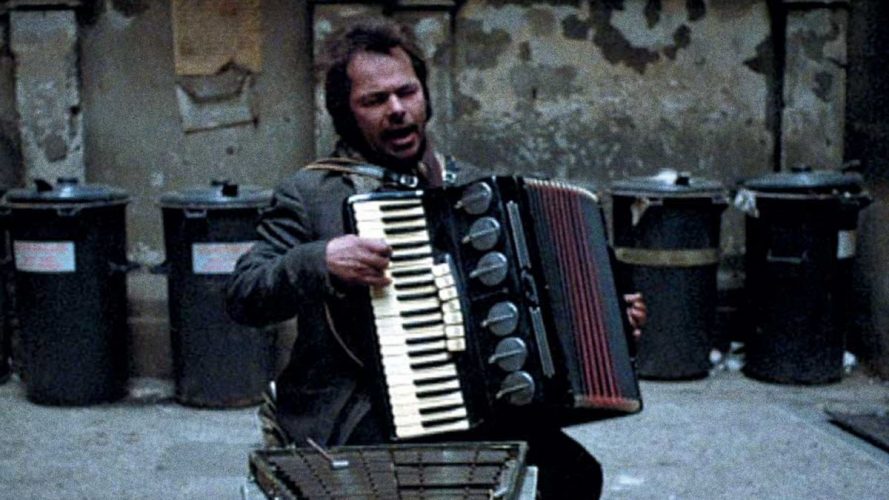
‘Stroszek’ sees director Werner Herzog at his bleakest, telling a somber tale of a surrealist nature, with elements of dark, subtle comedy thrown in. Herzog seems to target the capitalist American society here, following the story of a street singer who, along with his prostitute girlfriend and eccentric acquaintance, leave the harsh conditions of Berlin for the land of promises they had heard so much about, ending up on the Wisconsin side of the same. Despite having his characters financially crumble in America as well once they’ve gotten there, Herzog has claimed in interviews that his intention was never to downplay an economic structure, rather celebrate the American Dream and all it stands for instead. As it is, the film makes its protagonists suffer both in Berlin and Wisconsin, though each of these places has distinctive ways of inflicting the same emotional pain on their prey.
7. The Wind That Shakes the Barley (2006)
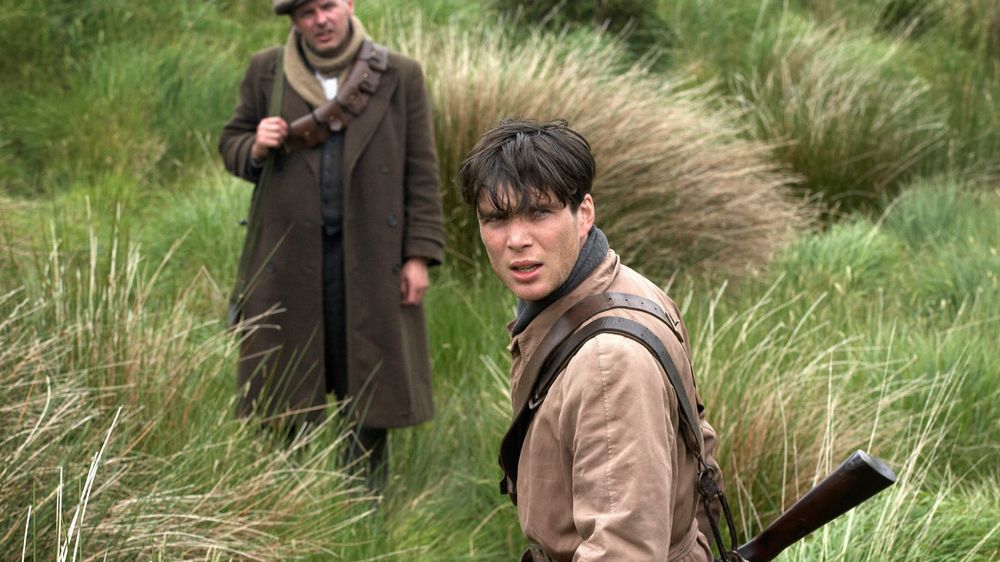
‘The Wind That Shakes The Barley’ won the Palme d’Or following its release, and was praised heavily for its honest depiction of the incidents that sparked the Irish War of Independence. Taking place against the backdrop provided by a brutal civil war, the film presents its arguments for both sides participating, leaving the supportive decisions to the viewer, because ultimately the side he/she picks doesn’t matter, as the situation prevailing is between humans and human, between brothers and brothers, and war does not have any winners standing strong by the end, at least, from a humanistic sense. Though it has its share of emotional moments, the film moves along quite a bit like a documentary, and I wouldn’t call this a big flaw, because the incidents captured on film here are historically accurate and well-researched.
6. Battleship Potemkin (1925)
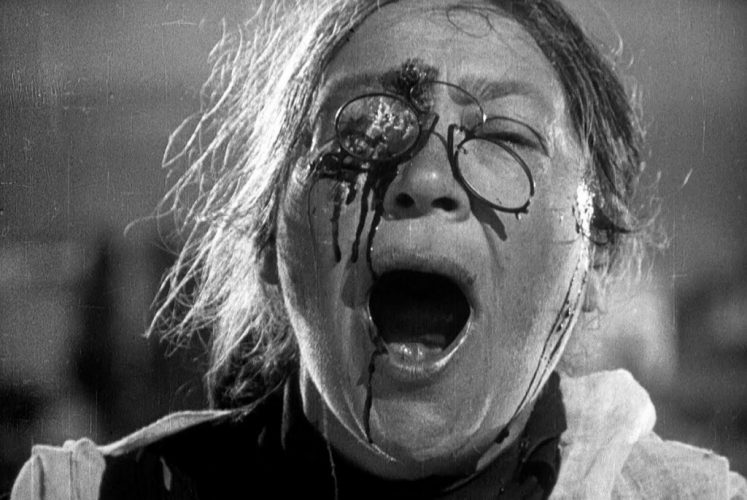
‘Battleship Potemkin’ is the only blatantly obvious propaganda film that I’ve selected to write about on this list, and that is solely because of how important both its cinematic achievements and message have been for the world that came following its release. The setting is upon a battleship where the crew members decide to protest against the officers of the vessel, as they become influenced by the ideologies imparted during the Russian Revolution. The first thing that I heard about this film before actually seeing it was the brilliance of the Odessa massacre, and I can assure you, it’s absolutely glorious how they carry out that sequence, sending home its thoughts better than anything else produced in the film, both aesthetically and otherwise. Like I mentioned, though, the film is knee deep in content signifying the propagation of socialistic ideas, making a lot of its dialogues forced, unrealistic, and even poorly written here and there.
5. Rosa Luxemburg (1986)
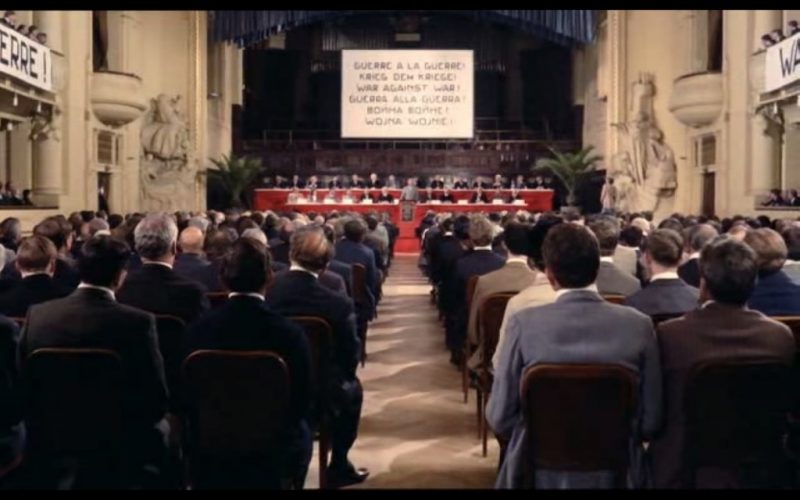
Though I won’t lie that there is some excessive favorability present in this film, it is still an inspiring biopic about one of the greatest socialist thinkers of all time, Rosa Luxemburg. It has its importance because few artistic works attempt to understand the ideologies presented by her, while many opt to divulge those presented by Marx and Ernst. Rosa was known for her bold speeches, thought-provoking articles, and revolutionary activities, demanding a change and the means to make it happen. It has been said that it is because of several leaders like herself, Karl Liebknecht, and Leo Jogiches, who together formed the German party known as the Spartacists, that the communist strategy failed to spread massively in Europe. I wouldn’t call it a completely honest account of events, but I enjoy the way this film presents its arguments in favor of the political system under discussion on this list.
4. Man of Marble (1977)
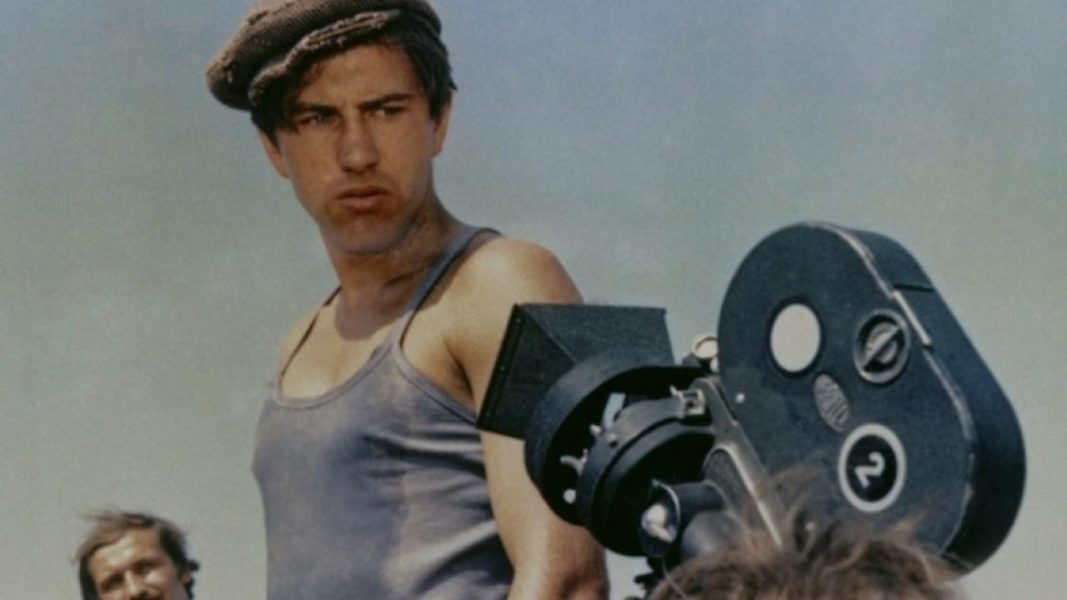
The title ‘Man of Marble’ describes the relatively respectable status of a singular person from amongst his peers, and that’s partly what this film examines. When I say “partly”, I mean to describe it as being one side of the story. If you remember, I started this article off with a little brush at propaganda cinema, and here, Polish filmmaker Andrzej Wajda describes perfectly the biggest issues such films face, which is a lack of completeness. In trying to promote an ideology, a person, or a thought, such films or written works tend to mask out another side of the truth. ‘Man of Marble’ follows a filmmaker’s attempt to understand the subject she wishes to do a diploma project on. In the films that she has seen about him, he is described as a hero of the people, who stood for his peers and believed in the unity of workers. When she starts interviewing around, being as stern and manipulative as she is, the truth is slowly revealed about this character, what he really was in reality. Was he just a tool used by the government to spread its half-truth principles?
3. Che (2008)

Though its title may give off the vibe of a biopic of the Cuban revolutionary, ‘Che’, a two-part epic, works more like a war film than it does an autobiographical picture. This isn’t a fault, because it succeeds in capturing the Revolution that shook the country exceptionally, with masterful performances all around, especially from Benicio del Toro, who embodies Che Guevera with passion, capturing the highs of victory that form the tales of part one as well as the terrible falls in part two with deep emotion. The film is somewhat documentarian in style, but it gets its message across very well. Guevera is the focus of the film, and that is pretty much made clear by Steven Soderberg’s character-focused direction, but the film is more about the movement, the fight for a cause, than it is about a great fighter who rebelled against all odds, only to meet his end through cruel, unforgivable means.
2. The Grapes of Wrath (1940)
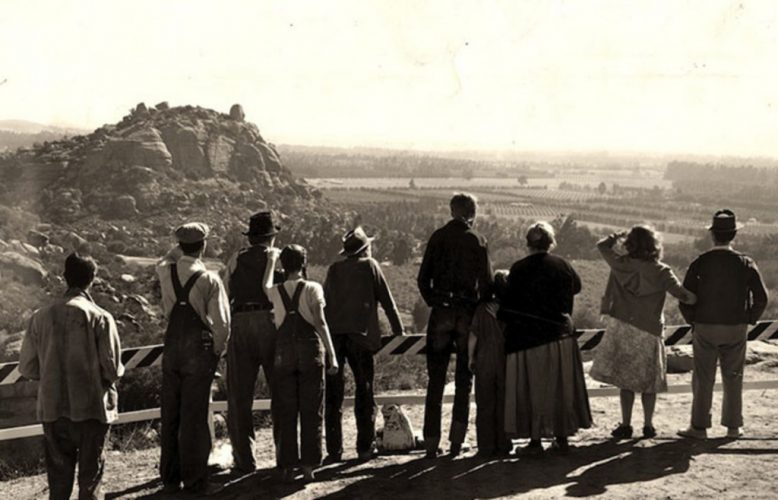
For a film released in the 1940s, it really is quite shocking how real the events that transpire here feel. It tells the hard-hitting tale of a family driven out of their own land as they succumb to poverty and homelessness. With its events taking place amidst the Depression period, the family sees hope only in the hazy rumors they’ve heard about small job openings in California, which happens to be awfully far away from them. The story focuses on the struggles they face as they journey across the country looking for work to support themselves, led by a member who happens to be an ex-convict, recently released on account of good behavior. The moving tale sees the family trying hard to stick together, not leaving a soul behind, out of their little clan, when even a spark of temporary goodness comes their way. Henry Fonda gives an excellent performance as the lead, and John Ford’s direction takes the film to a bitter, honest form of perfection.
1. Modern Times (1936)

The brilliance of a satire that attempts to criticize a system is in how less it talks about it, but how much it is still able to convey. Charlie Chaplin was a master at that, and that is perhaps the primary reason why he is revered over and above his competition at the time. His cinema, particularly works like ‘The Kid’, ‘City Lights’, ‘The Great Dictator’, and this, assess the situations prevailing over society by drawing in caricatures of its most recognizable players: the dim-witted police officer, the rich, fat, drunkard of a man, etc. He has them constitute the atmosphere surrounding his evergreen central hero, known simply as The Tramp (with slight variations in ‘The Great Dictator’ and the like). In ‘Modern Times’, Chaplin is a factory worker who gets fired early on, and being out on his own, falls into some absolutely hilarious circumstances, all of which help draw the bigger picture, which is the effect of poverty and joblessness on the common man, the Great Depression, and the troubles arising out of anti-socialist government systems.
Read More: Best Christian Movies

You must be logged in to post a comment.